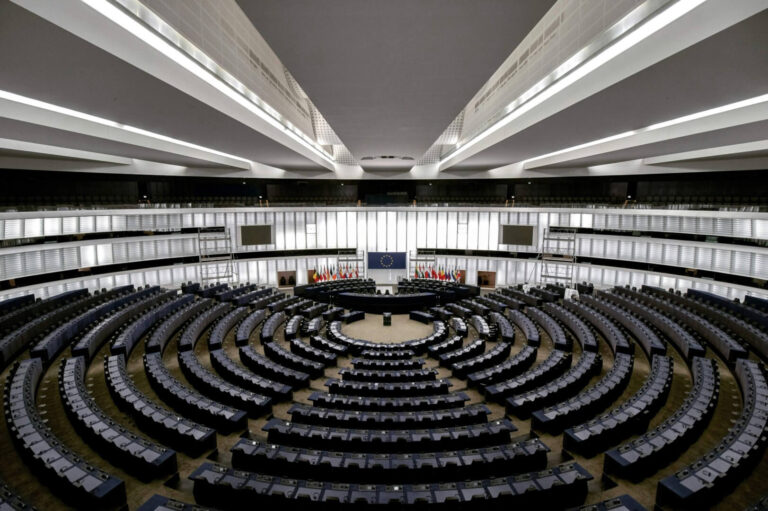Today’s ESG Updates
- UN World Court to Shape Climate Litigation: The World Court’s upcoming advisory opinion is expected to heavily influence future global climate cases and legal standards
- EDF Refocuses on Domestic Nuclear Projects: France’s EDF to cut overseas jobs and exit select international bids under new CEO, prioritising its domestic nuclear program
- Apple to Avoid EU Fines with App Store Reforms: EU regulators are likely to approve Apple’s App Store policy changes, helping it sidestep €50M daily fines under the Digital Markets Act
- Heatwave Disrupts Greece and Balkans: A third severe heatwave halts labour, closes tourist attractions, and worsens wildfire risks
UN World Court to determine the future course of climate litigation with advisory opinion
The World Court is expected to deliver an advisory opinion to determine the worldwide course of future climate action. The advisory opinion is legally non-binding, but experts note that it carries significant legal and political weight, which cannot be ignored in future climate cases. Wealthy countries of the Global North have told judges that existing climate treaties, which are mostly non-binding, should be the basis for deciding their responsibilities, while developing nations and small island states have argued for stronger measures, some legally binding, to curb emissions and for the biggest emitter countries to provide financial aid. Experts state that national and regional courts will turn to this advisory opinion as a persuasive authority which helps inform judgments with binding consequences under their legal systems. Companies can rely on ESG solutions to keep up with policies amid evolving regulatory landscapes.
***
Further reading: World Court is poised to mark the future course of climate litigation
Sources say France’s EDF may withdraw from several overseas projects and cut jobs

Sources state that under a new CEO, Bernard Fontana, France’s EDF will be reducing its headcount overseas and scrapping bids on some nuclear projects abroad to focus on a major local construction programme. Fontana has stated that he will target the development of domestic nuclear projects rather than its international business, and changes to the overseas businesses include pulling back from some bids to build reactors outside of Europe. EDF will now focus on tenders for nuclear projects in the Netherlands, Sweden and Finland, while deprioritising projects outside Europe, including those in Poland, India, and Canada. EDF states that the new French nuclear programme is the group’s priority, though the company is still heavily indebted after expensive repairs to its nuclear fleet. The company is also looking to sell some of its renewable energy assets in North America and Brazil. ESG tools can be used to provide further insights into industry developments.
***
Further reading: Exclusive: France’s EDF to withdraw from some overseas projects, cut jobs, sources say
Sources say the EU is to accept App Store changes, and Apple will avoid daily fines


Sources reveal that Apple’s changes to its App Store rules and fees are likely to secure the approval from EU antitrust regulators, and this will help Apple avoid potentially hefty fines of approximately €50M per day. The company stated that developers will pay a 20% processing fee for purchases made via the App Store, but fees may drop to 13% for Apple’s small-business program. Furthermore, developers who send customers outside the App Store for payment will pay a fee between 5% to 15%, and they can use as many links as they wish to send users to external payment methods. These changes were made following a €500M fine in April, when the EU antitrust enforcer said that its technical and commercial restrictions breached the Digital Markets Act (DMA) as they prevented app developers from steering users to cheaper deals outside the App Store. Though the timing could still change, the European Commission is expected to approve the changes in the coming weeks.
***
Further reading: Exclusive-Apple set to stave off daily fines, EU to accept App Store changes, sources say
Heatwave hits Greece, Balkans, affecting both labourers and tourists alike


The third heatwave of the summer had hit Greece and the wider Balkans, barring labourers from work, keeping tourists away from the ruins and leaving firefighters to battle scattered blazes in the countryside. Couriers, food delivery riders, and builders in and around Athens and other regions were ordered to pause work from midday until 5 PM as the temperature was expected to surge as high as 43°C. The Acropolis ruins were also to be shut by authorities for five hours from midday on both Tuesday and Wednesday. Climate change has resulted in longer, more severe heat waves, as well as destructive floods and wildfires in Greece. Large parts of Western Europe also suffered from a severe heatwave that killed many, and triggered regional forest fires and health alerts. Globally, 2024 was the warmest year on record, and temperatures exceeded 1.5°C above the pre-industrial era for the first time.
***
Further reading: Labourers barred from work, tourists kept from ruins as heatwave sears Greece, Balkans
Editor’s Note: The opinions expressed here by the authors are their own, not those of impakter.com — Cover Photo Credit: Frederic Köberl

